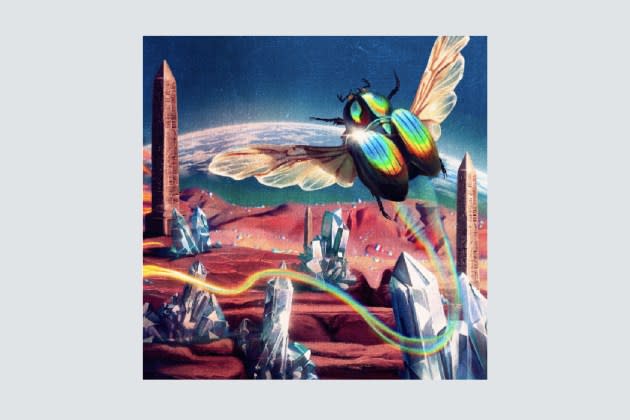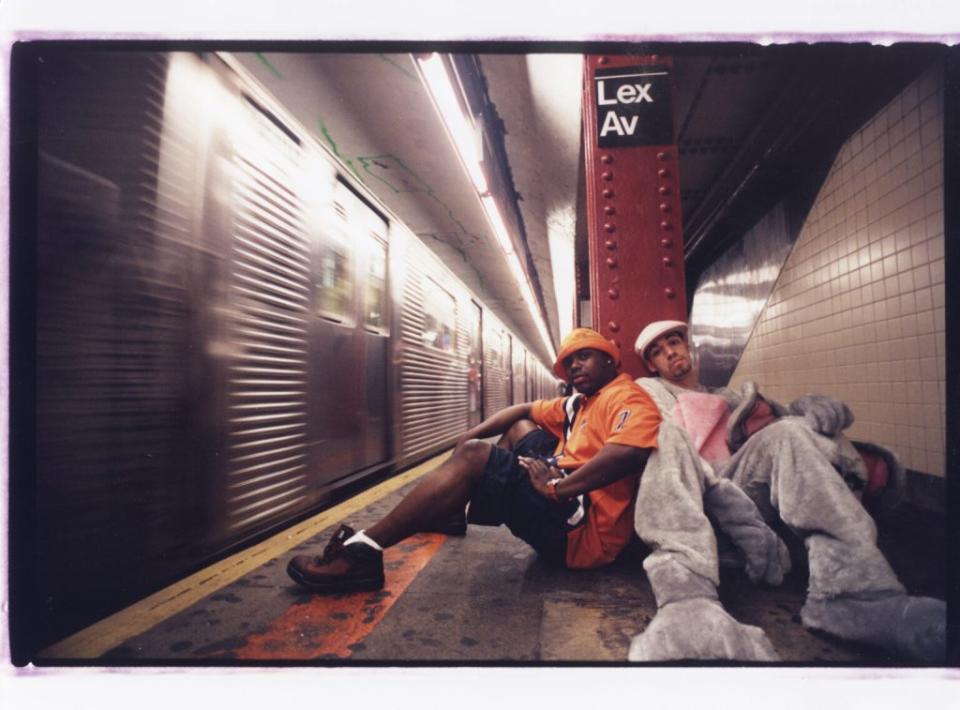Danger Mouse & Jemini’s ‘Born Again’ Feels Like the Best Hip-Hop Record From 2003 You Never Heard: Album Review
- Oops!Something went wrong.Please try again later.
- Oops!Something went wrong.Please try again later.

In the 20 years since “Ghetto Pop Life,” the acclaimed debut album from producer-rapper team Danger Mouse & Jemini, much has happened — to them and to hip-hop, much less to the world. You wouldn’t know it listening to their overdue follow-up, “Born Again,” but that’s a good thing, especially against the backdrop of all of that change.
A literal time capsule of sound and content from early-‘00s rap, the duo’s sophomore effort was evidently recorded and indefinitely shelved shortly after the release of “Ghetto Pop Life,” making it an authentic throwback to that bygone era. But Jemini’s versatility as a lyricist and Danger Mouse’s sturdy, imaginative production gives “Born Again” a timeless quality that’s not just worthy of its predecessor but places it among the top tier of similar releases from the last several years, including A Tribe Called Quest’s “We Got It from Here… Thank You 4 Your Service” and “Cheat Codes,” Burton’s 2022 collaboration with Black Thought, that get heads thinking as much as nodding.
More from Variety
At just 10 tracks, “Born Again” is shorter than “Ghetto Pop Life,” and includes none of its underground-luminary features, which in 2003 included the Pharcyde, J-Zone, Tha Liks and Prince Po. Instead, it offers a showcase of Jemini’s own different “voices,” which vacillate between gruff, introspective verses and Mos Def-style singing, cemented together with a playfulness that especially sounds anachronistic among most of today’s chart-toppers. Meanwhile, Danger Mouse’s production, which has expanded over the last two decades to encompass collaborations with everyone from Cee-Lo and MF Doom to Beck and Karen O, harkens back to his subdued, slightly melancholy work on “The Good, the Bad & the Queen” and Sparklehorse’s “Dark Night of the Soul.” It’s a potent, surprisingly emotional combination that, again, elevates the music from would-be “lost classic” status to something with contemporary but enduring relevance.

The opening track “All I” immediately showcases Jemini’s skill as a storyteller, exploring the various hustles, and struggles, that both preceded his music career and shaped it: “I slung all that coke / And all that crack / And I wish all the time I wasted I could get all back,” he raps with a sobering honesty over a tip-tap beat and acoustic guitar sample. Yet “Locked Up,” along with “Dear Poppa” later on the album, truly feels like a song that wouldn’t even be made today, certainly not with the clear-eyed, narrative approach he takes. On the former, he chronicles the life — past, present and future — of a convict reflecting on the fallout of a prison stint; on the latter, he quotes Andre 3000’s intro to “Ms. Jackson” before examining his complicated relationship with his father, alternately celebrating, empathizing and judging the obstacles between them.
Complementing Jemini’s lyrical content, Danger Mouse’s instrumentals provide connective tissue between the period in hip-hop when sampled material felt like a game of “Where’s Waldo” with crate diggers and our current one where it’s almost superfluous. If it’s not exactly the same, Danger Mouse opens “Me” with a sample that sounds like the one used on Souls of Mischief’s “That’s When Ya Lost” (Jack Bruce’s “Statues”); the second single “Born Again” simultaneously echoes Blackalicious’ “Make You Feel That Way” and Mos Def’s “Umi Says”; “Dear Poppa” plinks forward like Burton smashed the piano borrowed from Isaac Hayes for Public Enemy’s “Black Steel In the Hour of Chaos”; and if “Where You From” isn’t actually using theme to the 1980s “Transformers” animated series, its composers Ford Kinder and Anne Bryant could be forgiven for assuming that it was.
Yet even if these references aren’t deliberate, they feel self-aware, like cheeky callbacks to hip-hop boilerplate or just personal favorites as they lurk outside of the genre’s mainstream. “Brooklyn Bazquiat” best exemplifies this, paraphrasing the chorus of Notorious B.I.G.’s “Hypnotize” (itself a quote of Slick Rick’s “La Di Da Di”) in exactly the kind of “don’t call it a comeback” track that was at one time a prerequisite for any rapper returning from their debut (fittingly, the first single from the album). Invoking the name of one of the most important Black artists in hip-hop’s panorama in the song’s title underscores the multidimensionality of influences that are not just musical but cultural, while Jemini’s nimble, intensely funny braggadocio here and across the album suggests he likes to fuck around — even if those underestimating his skill would promptly find out.
Ultimately, by virtue of its timing, it’s possibly a better companion piece for “Cheat Codes” than “Ghetto Pop Life,” but in any era “Born Again” doesn’t just live up to but exceeds the producer and rapper’s first outing together. Even if you weren’t familiar with their debut, it’s immediately clear why Danger Mouse and Jemini didn’t abandon its follow-up: it’s a tighter, more cohesive, more focused album that spotlights each collaborator’s strengths and embodies their love for the genre — in other words, catnip for fans of classic hip-hop desperate to discover something “new.” Let’s just hope it doesn’t take another 20 years for another one from them.
Best of Variety
Sign up for Variety’s Newsletter. For the latest news, follow us on Facebook, Twitter, and Instagram.

